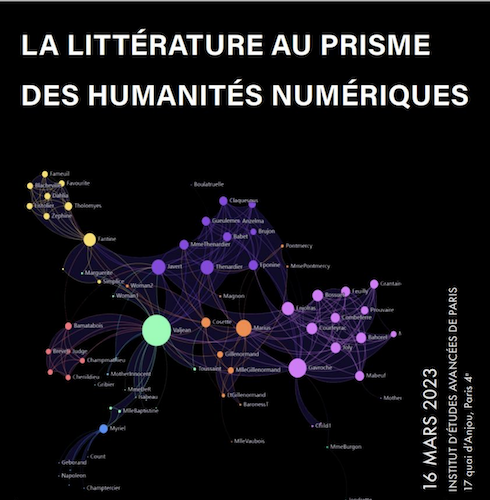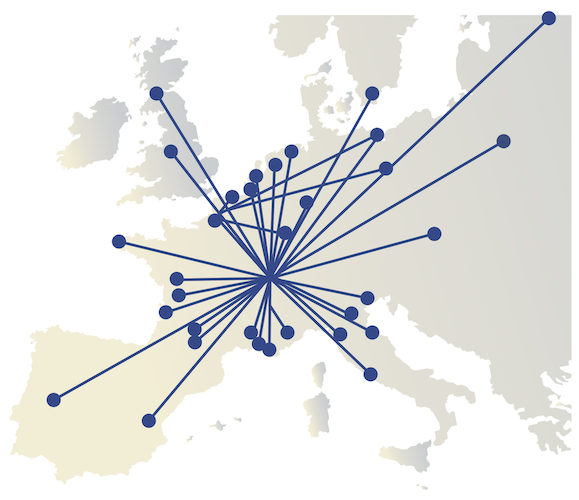ModERN PI Glenn Roe attended the 53rd-annual BSECS conference in January 2024 to discuss literary-historical text reuse as part of the sponsored Roundtable: “Co-presence of texts: Use-cases for text reuse-detection in 18th-century corpora”. The roundtable abstract is below:
Reusing texts, or more often, reusing textual fragments of variable length, was a widespread and diverse practice in 18th-century print culture. The notion of text reuse thus encompasses a wide spectrum of phenomena, practices and textual objects, ranging from the construction of poetic centos and the recycling of near identical fragments in philosophical works, to the copying of bons mots into private notebooks, or simply the reprinting of entire texts, often in different contexts and environments. As a literary phenomenon, text reuse was not merely a by-product of the era’s burgeoning print culture, but also a critical facet of the intellectual, cultural and aesthetic discourse that defined the period. The practice facilitated the dissemination of ideas, enabled the cross-pollination of genres, and played a significant role in the era’s dynamic literary and philosophical landscape. The advent of sequence alignment algorithms has significantly streamlined the detection of instances of text reuse, making it applicable to large corpora of digitised texts. These sophisticated tools, however, primarily identify the co-presence of fragments of texts—in more technical terms, a series of identical n-grams in a pre-processed and lemmatised form of the texts—in two different corpora. Interpreting these findings and understanding their relevance to specific research questions is a nuanced and complex process. For instance, a simple reprint of a work might hold little value for a study of literary influence, whereas the previously unrecorded reprinting of a poem across various journals could provide valuable insights into its dissemination and contemporary significance. Similarly, explicitly labelled citations might be peripheral for one research inquiry, yet central to another. This roundtable discussion seeks to address the multifaceted nature of text reuse from various perspectives and with diverse objectives. The use-cases discussed cross multiple fields of study and research questions, from a large-scale consideration of reuse 18 networks as a proxy for authorial influence, to a finer-grained examination of poetical reuse and reprinting in the 18th-century press and the role of writers’ notebooks and their exchanges with other works. Our hope is that the resulting discussion will help to unravel the intricate layers of text reuse, probing the multiplicity of intents behind this practice—whether homage, appropriation, critique, intellectual dialogue, or the perpetuation of literary and philosophical tradition. As the 18th century was a crucible of ideological ferment, with Enlightenment thought challenging established norms and conventions, text reuse can serve as a lens through which to examine the era’s ideological currents, including the subtle dissemination of controversial ideas, the use of pastiche as a form of critique or satire, and the role of text reuse in the evolution of literary forms and genres. By fostering an interdisciplinary dialogue that includes literary historians and digital humanities experts, this roundtable aims not only to elucidate the technical aspects of identifying text reuse over 18th-century corpora, but will also strive to understand its cultural, intellectual and historical contexts.
Chair: Caroline Warman, University of Oxford
Speakers: Gillian Pink, Voltaire Foundation Glenn Roe, Sorbonne Université Roman Kuhn, Voltaire Foundation




